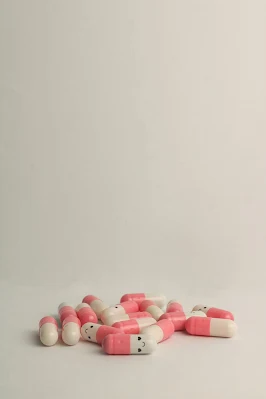Challenges Facing Rural Pharmacies in America

At the point when a drugstore director answered his phone inside Bronson Pharmacy, the call was from a customer requesting her medications to be delivered to her home. The closest medicine store is 11 miles away in Williston. Similar to many residents of Bronson, a rural city with a population of 1,000, they depend on this pharmacy for deliveries of prescriptions and over-the-counter drugs.
Running such a small operation has been tough, the director said. He has lost many customers to companies offering prescription services like GoodRx and Amazon. Two other reasons small, rural pharmacies across the country are struggling are insurance company practices and the pandemic.
The director runs the store alone and said he has about 35 regular customers. "It's not overwhelming," he said. "Because of that, I can manage it."
Most shelves in the 1,000-square-foot building are empty. It's not a supply chain issue; there's simply little demand for over-the-counter medications at his store.
In 2020, he tried selling his business to a larger pharmacy chain, but the company declined, saying the location was too far from its other stores.
A University of Maryland professor of pharmacoeconomics said store location is a key factor in the viability of independent pharmacies. He said pharmacies make money on some drugs and lose money on others, so where a store is located and what medications are in demand locally play a role in profitability.
However, a great location isn't always enough to save a pharmacy. Angel's Pharmacy in Palatka is located near a hospital and an assisted living facility, yet its owner and manager said they still struggle to stay in business.
The manager said much of the challenge comes from Pharmacy Benefit Managers (PBMs), who negotiate contracts with drug manufacturers on behalf of insurers. PBMs are responsible for reimbursing pharmacies for dispensing medications to patients.
In 2020, Angel's Pharmacy lost $100,000 in expected reimbursements. The owner said the government should prevent large insurance companies from running their own PBMs and mail-order pharmacies. "They're doing everything they can to undermine our businesses," he said. "It's a monopoly."
According to the professor, insurers justify these services by arguing that it alleviates financial burdens on those relying on medications. "From the insurance perspective, if we can do it ourselves, it saves money," he said.
Many independent pharmacies are at the mercy of insurers since patients enrolled in insurance plans cannot use their coverage at these smaller pharmacies. "Imagine you're the only pharmacy in rural Florida," he said. "Are you really going to be able to negotiate with a multibillion-dollar company that says, 'Here are the terms. Take them or leave them'?"
With mail-order services becoming a convenient option for individuals to fill their prescriptions, many local pharmacies have had to adapt.
The owner of Cheek's Pharmacy in Cross City, Dixie County, said expanding his store's offerings was crucial to its survival. In addition to prescriptions, they sell bait and tackle, ammunition, and even have a slot car racing game. The owner said they might start selling firearms soon.
Cheek's has more than 10 employees who manage the store's counter and drive-through. The owner said he often meets personally with customers struggling to pay for their prescriptions. "We want them to be healthy and take care of them," he said.
A 46-year-old woman drives a short distance from her home in Old Town to get her prescriptions from Cheek's. She said her insulin is much cheaper there than at a large chain pharmacy.
Cheek's Pharmacy provides deliveries within a 25-mile radius and regularly makes late-night deliveries. The store had a sister shop that closed years ago. Now, Cheek's has around 1,000 customers who travel to the area for their medications.

Good Content feels nice to read it.
ReplyDeleteRead More